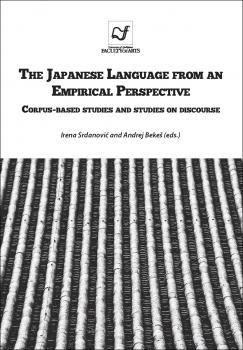The Japanese Language from an Empirical Perspective: Corpus-based studies and studies on discourse
Keywords:
International Conference of the European Association of Japanese Studies, Japanese language, empirical methodologies, diachronic Japanese language corporaSynopsis
This book presents empirical methodologies and insights into the field of spoken and written discourse, in syntax, lexis, in corpus-based research and its applications to Japanese language education, and an exploration of the differences across time and register in diachronic Japanese language corpora. As such, it is divided into four parts, which are presented below with a brief overview of each chapter.
Chapters
-
Preface
-
Units for the analysis of Japanese written text and spoken discourse
-
Lexical cohesion and text-organizing function in the Japanese text: A Japanese text linguistics proposal
-
Tracking references to unfamiliar food in Japanese Taster Lunches: Negotiating agreement while adapting language to food
-
The grammar and discourse functions of Japanese cleft sentences
-
Modal expressions and verbal interaction type: Suppositional adverbs as discriminators of Japanese corpora according to oral and written discourse varieties
-
Adjectives on –i in Japanese language corpora: Distribution, patterns and lexical constraints
-
Readability measurement of Japanese texts based on levelled corpora
-
Analysis of correctness in adverb use in the Japanese composition support system Nutmeg
-
Stylistic differences across time and register in Japanese texts: A quantitative analysis based on the NINJAL corpora
-
On the possibility of a diachronic speech corpus of Japanese
Downloads
Download data is not yet available.

Published
January 13, 2020
Categories
How to Cite
Bekeš, A., & Srdanović, I. (Eds.). (2020). The Japanese Language from an Empirical Perspective: Corpus-based studies and studies on discourse. University of Ljubljana Press. https://doi.org/10.4312/9789610602170

